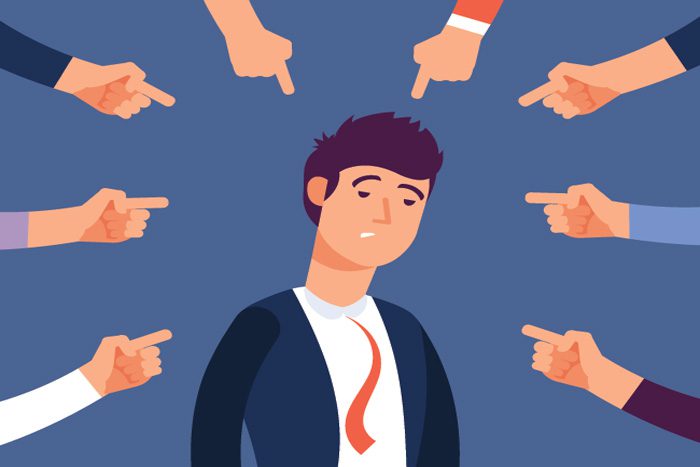 People with substance use disorders face a number of challenges in their recovery.
People with substance use disorders face a number of challenges in their recovery.
Unfortunately, one of the most difficult to overcome is the stigma surrounding addiction.
What Is Stigma?
The term stigma is used to refer to false negative beliefs that are widespread about a topic or a group of people. Examples of addiction stigma include:
- Addiction is a choice.
- People who use drugs have no willpower.
- People who abuse alcohol are selfish and don’t care about their loved ones.
- Only poor and uneducated people develop addictions.
- Someone with an addiction is a criminal who deserves to be in jail.
- Someone with an addiction can’t contribute to the community.
- Someone with an addiction can’t be helped.
Using derogatory names to refer to people with an addiction, such as “junkie” or “crackhead” is also a form of stigma. These names are intended to be demeaning and hurtful.
What Causes Stigma?
Factors that contribute to the stigma surrounding people with substance use disorders include:
- Lack of education about the nature of addiction
- Not knowing anyone with a substance use disorder
- Being surrounded by others who share the same prejudicial beliefs
- Wanting to believe there are simple solutions to complex problems
The stigma surrounding substance use disorders can be viewed as similar to the stigma surrounding mental health issues such as anxiety, depression, and PTSD. Since many people with substance use disorders also have co-occurring mental health conditions, this only serves to exacerbate barriers to recovery.
How Does Stigma Hurt People with Substance Use Disorders?
The stigma surrounding addiction has several negative effects. Stigma can:
- Make people in need afraid to ask for help for fear of being judged
- Decrease self-esteem
- Create feelings of failure when willpower alone can’t fix the problem
- Lead to symptoms of depression
- Promote withdrawal from social situations due to fear of judgement
- Encourage the development of a victim mentality by making the person feel as though they will never be respected no matter what they do
Additionally, stigma can have a negative impact on the family members of people with substance use disorders by encouraging them to stay silent instead of seeking out the support they need to process their own feelings surrounding their loved one’s addiction.
How Can Stigma Be Overcome?
Societal beliefs can’t be changed overnight, but there are a number of small steps you can take to address stigma and help create an environment that promotes recovery for those in need.
- Providing accurate information. Stigma feeds on misinformation. When someone says they believe a person with addiction just needs to show more willpower, speak up. Direct them to the Mayo Clinic website to learn about how addiction is a biologically-based brain disease with both genetic and environmental risk factors. When someone says that only the poor and uneducated struggle with substance abuse, point out that successful people can be vulnerable to addiction due to job-related stress, a propensity for risk-taking behavior, and an impulse to be overly critical of small mistakes or setbacks.
- Offering compassion instead of judgment. Small acts of kindness can have a ripple effect when it comes to breaking stigma. Helping someone in recovery by providing transportation to 12-Step or alternative support group meetings, assistance finding safe housing, or a reference for an employment opportunity sets an example for others to follow. When you lend a helping hand to someone in recovery without judging them for their past actions, you’re showing that you don’t believe in addiction stigma.
- Reaching out to the loved ones of people with substance use disorders. Addiction doesn’t just affect the person who is abusing addictive substances. Family and close friends can be hurt as well. Listening to the loved ones of people with substance use disorders and encouraging them to seek support for themselves from a group such as Al-Anon can help break stigma by giving these individuals the strength and resilience they need to move forward.
- Sharing recovery stories. If you’re in recovery, your personal story can be a powerful force to break harmful stigma. Although you don’t owe anyone an explanation for your decision to seek treatment or the details of your recovery, sharing your story can be a powerful way to reduce stigma. By showing that addiction can affect anyone and that change is always possible, you can help to change public perception. With any luck, your story may even help inspire someone in need to take the first steps towards treatment.





